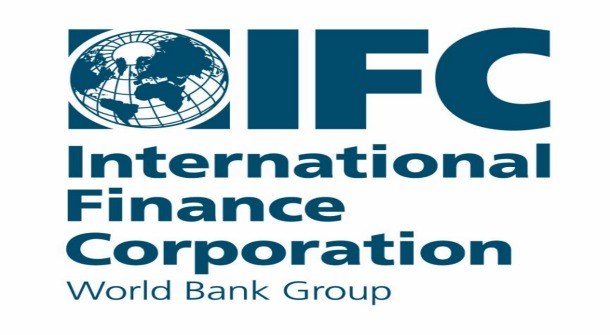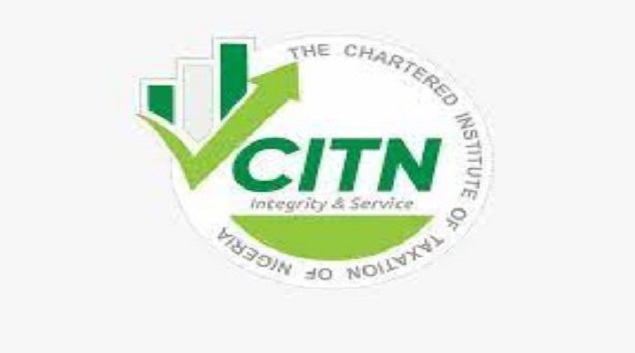E-Financial
IFC Invests to aid Better Access to Quality and Affordable Healthcare in Nigeria

International Finance Corporation (IFC) the largest global development institution focused on the private sector in emerging markets has announced that it recently committed an equity investment of USD 8.5 million in Santa Clara Africa Limited, to support the development of a 150-bed hospital and two 10-bed clinics in Lagos, Nigeria.
The project is promoted by AXA Mansard Plc, the Nigerian subsidiary of AXA Group, who provided equity to the project alongside IFC, the CAPE IV Fund, managed by African Capital Alliance and the hospital operator, Healthshare Ltd, through its parent company EOH Holding Ltd.
The two clinics will create a strong referral system of patients to the hospital.
These three facilities together will provide the necessary economies of scale to deliver better value for money in healthcare services.
The project is expected to provide healthcare at a price point that is below that of comparable hospitals and clinics in the market.
Eme Essien Lore, Country Manager, IFC, Nigeria, said “with this investment, IFC wants to contribute to increase the capacity of Nigeria’s healthcare system to offer quality and affordable services.
“We will look to scale up this efficient and integrated model nationwide” She added.
Nigeria’s healthcare sector remains underserved as demand – driven by population growth, higher income levels, rapid urbanization, and a rise of non-communicable diseases – continues to outstrip supply of quality healthcare infrastructure.
Diagnostic and primary care services are also limited, and at varying qualities. As a result, Nigerians spend an estimated US$1 billion annually on health services abroad.
The lack of secure access to affordable and good quality healthcare with an appropriate service mix has also hampered the growth of health insurance in Nigeria.
The low levels of health insurance penetration, which currently constitutes less than 10 percent of the population, contributes to the high cost of healthcare in Nigeria.
An increased availability of health insurance schemes would not only provide sustainable access to health services but also motivate the service providers to adopt cost-effective models.
This is IFC’s second investment with the AXA Group in the health sector. Earlier this year, IFC supported AXA’s insurance business in Egypt which includes health insurance, also through an equity investment.
E-Financial
Nigerians Lose N4.8 Trillion to Scams Since 2016

Nigerians have lost N4.8 trillion ($2.99 billion) to various scams since 2016, according to findings by Paul Alaje, a prominent Nigerian economist and chief economist at SPM Professionals.

This is coming on the heels of the recent crash of Crypto Bridge Exchange (CBEX), a digital asset company, where over 600,000 investors lost N1.3 trillion.
With the collapse of CBEX, Alaje said that accounting for the depreciation of the naira, the actual figure is close to N8 trillion ($5 billion) since 2016.
CBEX, like all Ponzis and scams, was an investment fraud that pays existing investors with funds collected from new investors.
CBEX lured investors with promises of a 100% return on investment after 30 days.
Consistent with other scams, the early investors received the promised returns, attracting thousands more into what they thought was a legitimate platform.
Following the platform’s collapse, the Economic and Financial Crimes Commission (EFCC) has arrested two suspects believed to be among the operators.
A source from the economic crimes watchdog told a local outlet that five others, including two Nigerian siblings and a British citizen, are under probe for their involvement.
The EFCC is investigating who funded the firm, how it managed to evade regulatory scrutiny, and its legacy financial partners.
Emomotimi Agama, director general, Securities and Exchange Commission (SEC) said that CBEX wasn’t registered, limiting the agency’s ability to crack down on the company.
“The first responsibility of the SEC is to watch over regulated institutions within the confines of its available resources. Registration actually is the hallmark of regulation. Without registration, the possibility of regulation becomes difficult,”.
Agama further noted that no member of the public had made any reports regarding CBEX before it blew up, despite the company operating for nine months.
E-Financial
FG Rakes in N1.2 Trillion from Banks’ VAS

Nigeria’s banking sector, in 2024, thrived in a stormy economic climate, capitalising on market volatility to deliver record profits.

According to The Sun, nine of the country’s listed banking giants—Access Holdings, FCMB, Fidelity, First Bank Holdco, GTCO, Stanbic IBTC, UBA, Wema Bank, and Zenith—posted a combined profit after tax (PAT) of N4.786 trillion, a clear 53.3 per cent increase from the N3.121 trillion recorded in 2023.
Yet, beyond the glittering headline figures lies a deeper story, one told not just by earnings reports, but by the banks’ Value-Added Statements (VAS).
Often overlooked, this financial segment unpacks how the wealth created by each institution was distributed among key stakeholders: governments, employees, shareholders, and capital providers.
In 2024, total value added across these top banks surged to N8.871 trillion, a 66.3 per cent rise from N5.335 trillion the year before.
But what’s striking is who took the biggest slice of this financial pie.
The Nigerian government emerged as the single largest external beneficiary, surpassing shareholders by a significant margin.
A closer look reveals that tax collections from these banks totaled N1.166 trillion, marking a dramatic 111.4 per cent increase from the previous year.
Shareholders, by contrast, received N951.4 billion in dividends—an 87 per cent rise, but still over N200 billion less than what the government took home.
Zenith Bank led the profitability race, reporting a PAT of N1.032 trillion and generating N1.583 trillion in value added.
The government received N294 billion from the bank in taxes—the highest across the industry—while shareholders earned N196.7 billion.
A hefty N1.085 trillion was retained for reserves and future investments.
GTCO followed closely with a PAT of N1.018 trillion and N1.410 trillion in value added.
Taxes to government soared to N248.4 billion—a staggering 257 per cent year-on-year increase—while dividends to shareholders stood at N236.3 billion, slightly trailing government collections.
Access Holdings posted the highest total value added—N1.622 trillion—with a PAT of N642.2 billion.
From this, the government claimed N224.8 billion (14 per cent of value added), while N125.3 billion went to shareholders.
First Bank Holdco recorded a value added of N1.593 trillion and PAT of N663.5 billion, with N132.9 billion in taxes paid.
Yet shareholders received just N25.1 billion, highlighting a sharp imbalance in wealth distribution.
Fidelity Bank’s PAT rose 179 per cent to N278.1 billion, with value added hitting N508.7 billion.
Government collections surged to N95.5 billion, dwarfing shareholder payouts.
Stanbic IBTC reported N408.6 billion in value added. Interestingly, employees received the largest share—N86.7 billion—outpacing both the government (N78.5 billion) and shareholders (N64.8 billion).
FCMB faced a 21 per cent dip in PAT to N73.3 billion, but still increased its value added by 24 per cent to N205.1 billion. Government received N38.6 billion, nearly double what shareholders earned (N21.8 billion).
UBA, with a PAT of N766.6 billion, generated N1.384 trillion in value added.
However, 75 per cent of this was retained for business growth and expansion.
Wema Bank, one of the year’s breakout performers, recorded a PAT of N86.3 billion, up nearly 140 per cent, and created N156.7 billion in value added.
In a rare deviation from the trend, shareholders received N21.4 billion, exceeding the N16.2 billion paid in taxes, placing Wema among the few banks where equity investors earned more than the state.
While Nigerian banks returned record profits in 2024 and shareholders saw strong dividend growth, it was the government that emerged the biggest financial winner, receiving a massive N1.166 trillion—over N200 billion more than total shareholder dividends. The figures underscore a significant shift in wealth distribution from capital investors to the public treasury, raising important questions about how value is shared in Nigeria’s evolving financial ecosystem.
E-Financial
CITN Tasks New Tax Professionals to Shape Fiscal Policies for Efficient Tax System

Mr. Samuel Agbeluyi, the President of the Chartered Institute of Taxation of Nigeria, has charged incoming tax professionals to see their roles as critical to shaping Nigeria’s fiscal policies and building a more efficient tax system.

Agbeluyi gave the charge on Tuesday at the opening of the April 2025 Pre-Induction Orientation Programme held in Abuja.
While addressing participants, the CITN President said the orientation marked not just a personal achievement for inductees but the beginning of a greater national responsibility.
According to him, “Ultimately, it is expected that at the end of this programme and the induction thereafter, the number of tax professionals in the roll call of the CITN and indeed Nigeria would grow.
“Most importantly, more professionals would be added to the struggle of building an efficient and effective tax system in Nigeria, whilst influencing government fiscal policies and adding immense value to various stakeholders.”
Agbeluyi stated that the institute’s charter empowers it to determine the standard of knowledge and skills required to become a professional in the field, adding that the training was a deliberate step towards producing competent tax administrators capable of delivering value in the Nigerian economy.
He also noted that facilitators had been carefully selected from among experienced tax professionals and administrators to guide inductees using practical scenarios.
In her remarks, the Deputy Director of the CITN Tax Academy, Mrs Yetunde Suleiman, said the training was designed to expose participants to key developments in national and international tax administration, as well as emerging issues in the digital economy.
She noted that taxation remained central to Nigeria’s economic development and urged the inductees to take their training seriously in light of growing challenges in the country’s tax system, such as evasion, ambiguity of laws and high compliance costs.
Suleiman said, “There is a continuous need to produce, train and unleash qualified tax professionals to tackle these hydra-headed tax challenges.”
She urged participants to approach the sessions with enthusiasm, noting that the knowledge acquired would prepare them to become ambassadors of the institute and sound professionals equipped to drive reform in the tax space.

 Telecom3 days ago
Telecom3 days agoDigital Transformation Remains Africa’s Gateway to Economic Advancement – Adumike

 Telecom3 days ago
Telecom3 days agoPAFON 2.0: Experts Discuss Pathways to Boost Financial Inclusion in Nigeria

 General News3 days ago
General News3 days agoEFCC Clarifies SCUML Certificate Misuse amid CBEX Ponzi Scheme Scandal

 Telecom2 days ago
Telecom2 days agoMTN Nigeria Faces Class Action Lawsuit over Alleged Data Mismanagement

 General News2 days ago
General News2 days agoFG to Introduce New Tax Credit Scheme to Replace Pioneer Status Incentive

 E-Financial2 days ago
E-Financial2 days agoFCMB Capital Markets Leads ₦11.85bn GLNG Bond for LNG Plant Expansion

 E-Financial3 days ago
E-Financial3 days agoCBN, NGX Group Defend Economic Reforms at Nasdaq

 Telecom2 days ago
Telecom2 days agoNigeria Hits 1 Terabit Internet Traffic Milestone

























